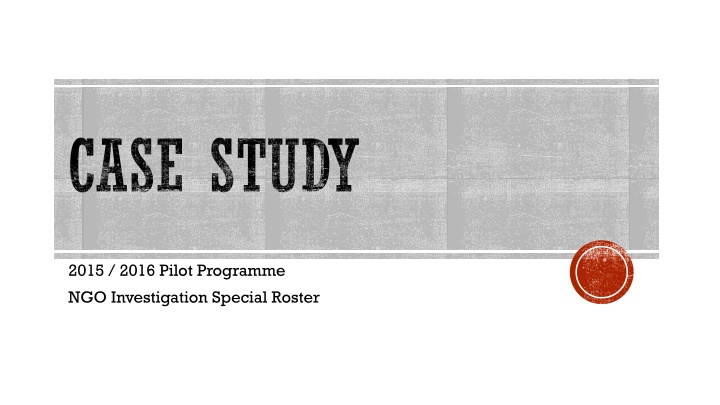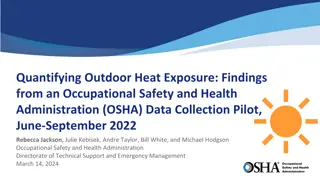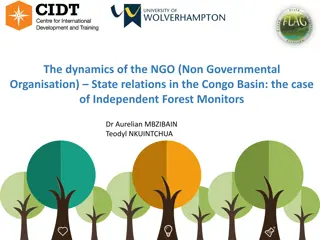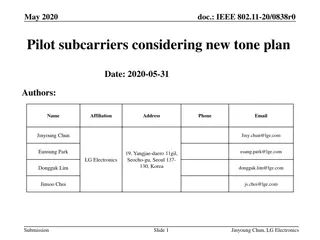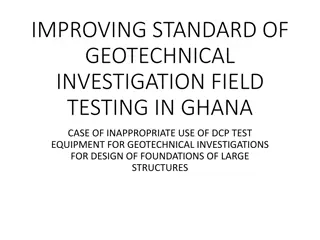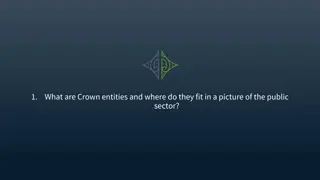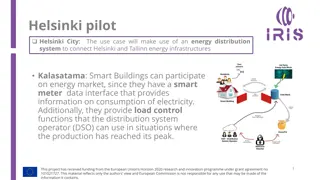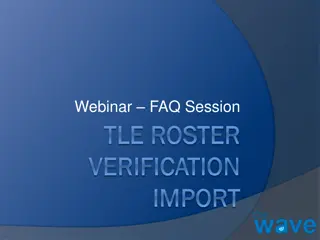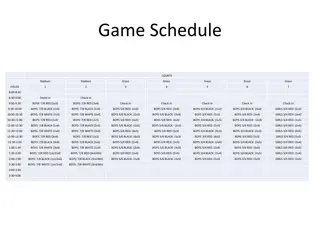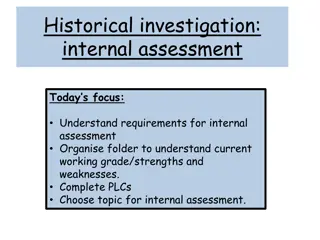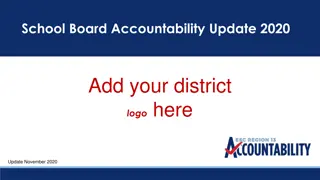NGO Accountability Pilot Programme 2015-2016: Investigation Special Roster
This case study describes the purpose, objectives, and outcomes of a pilot programme aimed at assisting UNHCR partners in investigating misconduct allegations. The programme, managed by Danish Refugee Council, saw limited demand due to factors such as lack of awareness, confidentiality concerns, and mismatched support needs. Despite completing investigations and training investigators, project funding ended after two years.
Download Presentation

Please find below an Image/Link to download the presentation.
The content on the website is provided AS IS for your information and personal use only. It may not be sold, licensed, or shared on other websites without obtaining consent from the author.If you encounter any issues during the download, it is possible that the publisher has removed the file from their server.
You are allowed to download the files provided on this website for personal or commercial use, subject to the condition that they are used lawfully. All files are the property of their respective owners.
The content on the website is provided AS IS for your information and personal use only. It may not be sold, licensed, or shared on other websites without obtaining consent from the author.
E N D
Presentation Transcript
CASE STUDY 2015 / 2016 Pilot Programme NGO Investigation Special Roster
PURPOSE AND OBJECTIVES Accountability demands placed on the NGO community in 2014 created request by NGO community for support to meet these demands particulary in the area of investigations of staff misconduct Objectives: help meet the needs of UNHCR partners in investigating allegations of misconduct strengthen UNHCR-NGO cooperation in third party investigations boost the accountability and quality of performance of UNHCR partners while positively impacting on these NGOs internal investigation procedures and capacities reduce incidents of abuse against persons of concern ensure more efficient use of financial, physical and human resources strengthen the credibility of humanitarian actors.
PILOT OVERVIEW UNHCR commissioned the Danish Refugee Council (DRC) to manage the pilot Recruitment of investigator roster through webpage Investigation policies refined and training methods established Investigators trained on methodology Results: 21 initial requests for assistance from NGOs 14 investigations completed 8 investigators deployed with 6 retained through end of pilot Project funding ended after 2 year contract expired
LESSONS LEARNED Despite initial demands for assistance NGOs made few requests Possible Reasons for Lack of Demand Availability of services not well known to the NGO community Use of an NGO partner to manage the services may have created concerns about confidentiality amongst other NGOs Project funding ceased after 2 years project not given enough time to establish use NGO support needs over the accountability lifecycle not understood or not met investigations may not have been the real need of the NGOs
